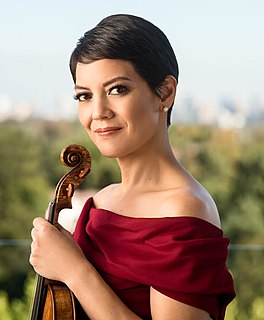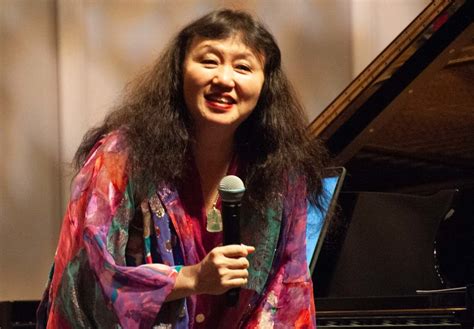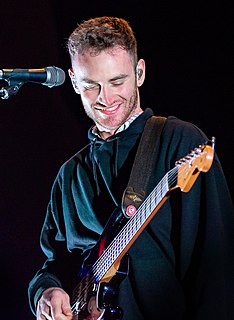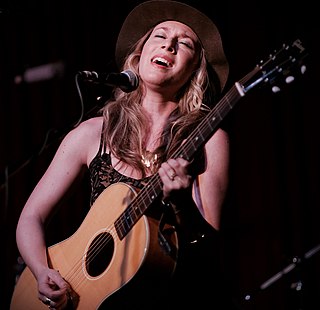A Quote by Anne Akiko Meyers
Even though I started playing the violin when I was four, my early chamber music experiences helped build a strong foundation for my solo work, as all music is a rich language and dialogue that is shared on stage, no matter what the size of the ensemble.
Related Quotes
When I'm representing my music live I think of it very much in a rock band sense. When I first started doing festivals in the 90s there really weren't other DJs playing the stages I was playing. So I felt I was being afforded an opportunity to kind of make a statement about what DJ music can be live. In the 90s, if you were a DJ you were in the dance tent, and you were playing house music and techno music. There was no such thing as a DJ - a solo DJ - on a stage, after a rock band and before another rock band: that just didn't happen.
Writing for chamber ensemble is the thing that excites me the most. So when I went down into the cistern, I didn't know that I was going to make a record based on that time and those improvisations. But as soon as I started playing music down there, I realised that it was going to be something significant for me.
Music is a universal language insofar as you don't need to know anything else about a musician that you are playing with other than that they can play music. It doesn't matter what their music is, you can find something that you can play together, with what their culture is. The dialect part of it comes into play, but nothing like the differentiation that language sets up, for example.
Open Graph is a language for structuring content and sharing that goes on in other apps, and we're continuing to build it out longer term. But we found we need to build more specific experiences around categories like music or movies. Where we've taken the time to build those specific experiences, stuff has gone quite well.
I started playing violin because I was fascinated by how violin players could play so fast. I would buy their cassettes, and learn different concertos, but then I started rounding out my collection. My dad was a big jazz fan, so I just started hearing a lot more soul music. I loved Little Stevie Wonder, and I got really into him as a singer and a writer as I got older.
When we talk about music, we tend to place our experiences into one of two categories: making the music and listening to it. Delineating the two seems practical and obvious. In reality, though, there are a lot of opportunities for overlap, and it doesn't matter how you get into the music as long as you connect with it.




































